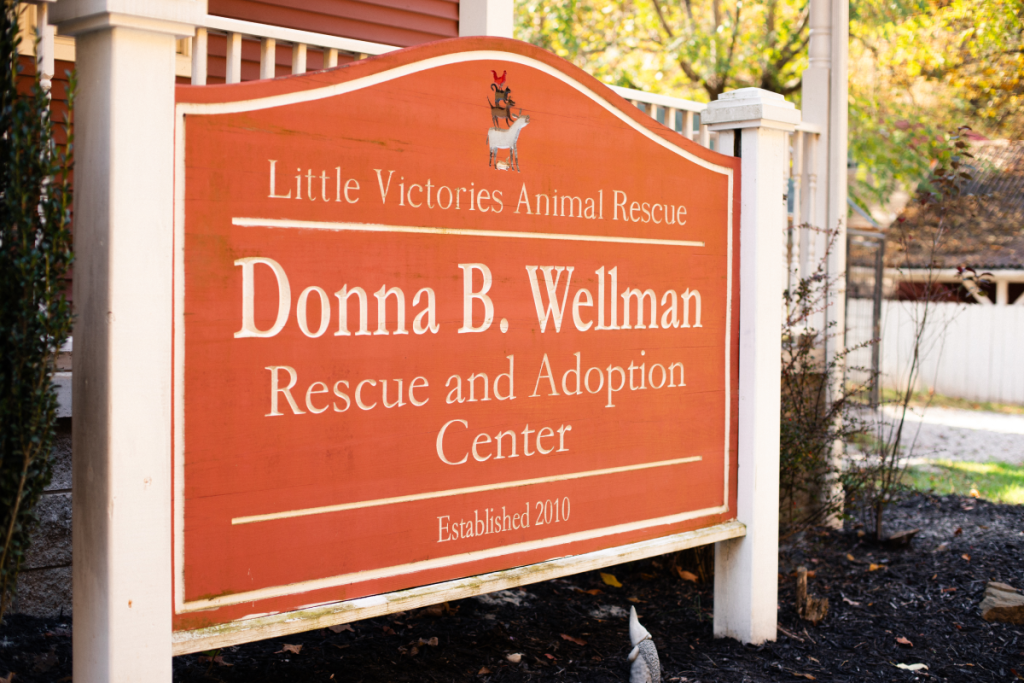The Role of Adoption Organizations in Promoting Responsible Pet Adoptions

Every year, millions of pets find themselves in shelters across the United States, often through no fault of their own. Animal shelters face overwhelming numbers of abandoned and neglected animals. In this context, adoption organizations emerge as vital players in the movement to promote responsible pet ownership. Their mission extends beyond simply rehoming pets; they work diligently to ensure that potential pet owners are well-equipped to make informed decisions and provide lifelong care for their furry companions.
Key Functions of Adoption Organizations
- Education and Awareness: These organizations are leaders in providing comprehensive resources about responsible pet care. They host workshops, distribute materials, and offer online content covering essential topics like training techniques, dietary needs, and socialization experiences for different pet breeds. For example, organizations often highlight the importance of spaying or neutering pets, which can prevent overpopulation and improve the health of the animals.
- Screening Processes: Adoption organizations typically implement rigorous screening processes aimed at matching pets with suitable families. This often includes interviews, home visits, and reference checks to assess the environment and lifestyle of potential adopters. Such measures not only help in identifying committed owners but also protect the welfare of the animals. For instance, some organizations may require potential adopters to demonstrate an understanding of a breed’s specific needs, ensuring a good fit.
- Support Services: After adoption, many organizations offer valuable post-adoption support services. This can include access to behavioral training sessions, helplines for pet care inquiries, and community events to foster connections amongst pet owners. These services are crucial in helping families navigate the transition, ensuring a smoother adjustment period for both the pet and the new owner. For instance, a new dog owner can benefit from attending free training workshops to manage behavioral issues, thereby reducing the likelihood of the pet being returned to the shelter.
By actively working to promote responsible pet adoptions, these organizations not only play a role in reducing the number of abandoned animals but also foster a community of informed and dedicated pet owners. Understanding the importance of their work can inspire more individuals to consider adopting pets and appreciate the ongoing commitment required in pet ownership.
Delving deeper into the practices of adoption organizations demonstrates their profound impact on the landscape of pet adoption across the United States. Their relentless pursuit of education, collaboration, and support ultimately contributes to a more humane society where both animals and people thrive. For prospective adopters, recognizing the invaluable services these organizations provide is an essential first step toward making a meaningful difference in the lives of animals in need.
DISCOVER MORE: Click here to learn about the critical role of socialization and training in successful pet adoption
The Impact of Adoption Organizations on Pet Ownership
In the ever-evolving landscape of pet ownership, adoption organizations serve as critical intermediaries between homeless pets and potential owners. They play a multifaceted role in not just facilitating pet adoptions but also in cultivating a culture of responsible pet ownership among the public. With a dedicated focus on enriching the lives of both pets and their humans, these organizations harness various strategies to ensure that each adoption is a positive experience for everyone involved.

One of the cornerstone functions of these adoption organizations is their emphasis on education and awareness. This commitment is manifested through various outreach initiatives aimed at ensuring that prospective pet owners have all the information they need before making the decision to adopt. Informative brochures, community workshops, and online webinars provide insights into a multitude of topics essential for effective pet care. For instance, organizations often conduct seminars on the responsibilities that come with pet ownership, including the importance of regular veterinary check-ups, the benefits of vaccinations, and understanding behavioral triggers that may be unique to certain breeds. By equipping potential adopters with knowledge, these organizations aim to create a network of informed pet owners who are prepared for the long-term commitment required in caring for an animal.
Moreover, adoption organizations place a premium on the screening processes they implement. Recognizing that not every home is suitable for every pet, these organizations meticulously evaluate adoption applications. This process often includes interviews and home visits, which serve to assess compatibility between the potential pet and its future owner. Such thorough vetting is imperative because it helps identify an adopter’s readiness to commit to the often rigorous demands of pet care. These screenings can help ensure that families understand a pet’s individual needs, such as exercise requirements and behavioral tendencies, boosting the likelihood of long-lasting placements. For instance, a family seeking to adopt a high-energy breed may be matched with resources to determine if their lifestyle can accommodate such needs efficiently, thereby minimizing the chances of future abandonment.
Beyond the adoption process, many organizations provide robust support services to new pet owners, which is instrumental in ensuring a successful transition for both pets and families. These services range from offering behavioral training sessions to launching community networks that connect new pet owners. For those unsure about how to address common behavioral issues, support from experienced trainers can be invaluable. In fact, research shows that families who engage with post-adoption resources report higher satisfaction and lower rates of pet returns to shelters. For example, a dog may exhibit anxiety during its first few weeks in a new home, and utilizing support resources can help owners implement strategies to alleviate this stress effectively.
The proactive approach of adoption organizations is essential in shaping a society where pet ownership is characterized by responsibility and commitment. By forging pathways that educate, screen, and support pet adopters, these organizations not only reduce the number of animals returned to shelters but also build lasting bonds between pets and families. Understanding the depth of their role can encourage more individuals to take that vital step toward adopting, realizing that their contributions can lead to a brighter future for countless animals in need.
The Role of Adoption Organizations in Promoting Responsible Pet Adoptions
Adoption organizations play a pivotal role in fostering responsible pet adoptions by not only finding homes for animals but also educating potential pet owners about the responsibilities that come with pet ownership. These organizations implement thorough screening processes to ensure that animals are placed in suitable environments, thereby reducing the likelihood of pet abandonment.One of the significant advantages of adoption organizations is their commitment to community outreach. They actively engage in campaigns to promote the benefits of adopting over buying pets from breeders or pet stores. This advocacy raises awareness about the large number of animals in shelters and the various breeds available for adoption, highlighting that all types of pets—from puppies and kittens to older animals—deserve loving homes.Moreover, many adoption agencies provide post-adoption support, which includes follow-up services and educational resources on pet care. This support system helps new pet owners adjust and fosters a deeper understanding of the ongoing obligations of caring for a pet. By offering training programs and resources, these organizations ensure that adopted pets remain in their homes throughout their lives, reducing return rates and enhancing the overall success of pet adoption.Additionally, adoption organizations often collaborate with local veterinarians to offer low-cost spay and neuter programs, which are essential in controlling pet overpopulation. This partnership not only benefits the community by decreasing the number of homeless animals but also educates pet owners on the importance of responsible breeding practices. Overall, the multifaceted role of adoption organizations is critical in promoting responsible pet adoptions, enhancing the welfare of animals, and supporting the human-animal bond in our communities. Their dedicated efforts are crucial for building a society where every pet can find a home.
| Advantage | Description |
|---|---|
| Community Outreach | Promoting adoption over purchase to raise awareness about homeless pets. |
| Post-Adoption Support | Providing resources and follow-up services to ensure successful pet ownership. |
DISCOVER MORE: Click here to learn how to keep your pets active and healthy
The Lifeline of Resources: Post-Adoption Engagement
Another vital aspect of the role played by adoption organizations lies in their commitment to post-adoption engagement. Once a pet has found its forever home, the responsibilities of both the new owner and the organization do not conclude. In fact, effective follow-up processes can make all the difference in nurturing a healthy pet-owner relationship. Many organizations implement regular check-ins with adopters to provide continued support and to ensure any questions or issues that arise can be promptly addressed. This involvement helps reinforce the notion that pet ownership is a long-term commitment, not merely an event.
This engagement can manifest in numerous ways, including social media platforms where pet owners can share their experiences and connect with others. Adoption organizations often curate online communities that foster interaction amongst pet owners, allowing them to share tips, seek advice, and celebrate milestones together. For instance, many nonprofits host “adopter meet-ups” where families can come together with their pets for socialization and fun, thereby reinforcing the community aspect of pet ownership. Furthermore, pet owners who engage in such communities report a stronger bond with their pets and an increased sense of responsibility towards them.
Partnerships and Resources for Ongoing Education
Additionally, adoption organizations frequently collaborate with local veterinarians, trainers, and educators to offer a plethora of resources aimed at continuous learning. Training programs, dog obedience courses, and workshops on animal nutrition are just a few of the offerings that can significantly enhance the overall pet ownership experience. By creating an ongoing educational framework, organizations play a crucial role in preventing common behavioral issues from escalating and in encouraging responsible practices among pet owners.
For example, surveys conducted across various regions in the United States indicate that pets adopted through organizations that provide extensive post-adoption classes have a 30% lower rate of returning to shelters within the first year. This statistic underscores the importance of continued learning and community support in fostering responsible pet ownership.
Advocacy and Policy Change
Adoption organizations also take on an advocacy role that extends beyond individual pet adoptions. They actively engage in promoting policies that enhance the welfare of animals at a legislative level. By collaborating with local and state governments, these organizations work to implement policies that regulate pet breeding, promote spaying and neutering, and support funding for animal welfare initiatives. For instance, initiatives like the “Adopt Don’t Shop” campaign have gained significant traction, leading to legislative changes that curb irresponsible breeding practices. Such advocacy not only educates the public but also shifts societal norms towards more ethical standards in pet ownership.
Moreover, organizations often conduct awareness campaigns that highlight the plight of homeless animals, with an emphasis on encouraging adoption rather than purchasing pets. They engage in outreach programs that target schools, community centers, and even corporate workplaces to broaden the conversation around responsible pet ownership. These campaigns aim to dismantle prevalent stereotypes associated with shelter pets, showcasing their diverse traits and personalities, ultimately encouraging more adoptions and reducing the stigma around rescue animals.
The synergy between advocacy, education, and community engagement forms the backbone of adoption organizations’ ongoing efforts to promote responsible pet adoptions. By understanding the multifaceted roles that these organizations play, potential adopters and existing pet owners can appreciate the support systems available to them and feel empowered to make informed decisions that benefit both themselves and the pets they choose to welcome into their lives.
DISCOVER: Click here to learn about clicker training
Conclusion: Building a Responsible Pet Adoption Culture
In concluding the discussion on the role of adoption organizations in promoting responsible pet adoptions, it is clear that these entities are vital to both animal welfare and community building. Through a comprehensive approach that encompasses education, advocacy, and community engagement, adoption organizations not only facilitate the initial match between pets and owners but also ensure that this relationship flourishes over time.
The emphasis on post-adoption support illustrates the commitment of these organizations to enhancing the pet ownership experience. By fostering ongoing connections between adopters and communities, they provide essential resources and create a platform for shared experiences, which is crucial for positive pet-owner relationships. Furthermore, the statistical data indicating lower return rates for pets adopted through organizations that offer educational programs highlights the tangible benefits of continued engagement. This underscores the importance of both knowledge and community in reducing the likelihood of abandonment due to preventable issues.
Equally significant is the advocacy work undertaken by these organizations, as they push for legislative changes that uphold animal welfare standards. Through campaigns like “Adopt Don’t Shop,” they actively reshape public perceptions, encouraging responsible practices that prioritize the needs of pets over profit. As a result, these organizations not only work for the betterment of individual animals but also contribute to a cultural shift towards more ethical pet ownership in society.
In summary, adopting a pet is just the beginning of a lifelong commitment, one that is supported by the dedicated efforts of adoption organizations. By championing education, community support, and advocacy, they play a fundamental role in ensuring that responsible pet ownership becomes the norm. As potential adopters consider welcoming a new furry family member, they should look to these organizations as invaluable allies in their journey toward making informed and compassionate choices.


